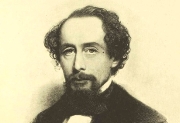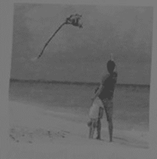��Ŀ����
����Ŀ�����ĸĴ���
�ٶ�Ӣ�������ʦҪ��ͬ��֮�佻�������ģ���������ͬ��д���������ġ����й���10�����Դ���ÿ���������������������漰һ�����ʵ����ӡ�ɾ�����ġ�
���ӣ���ȱ�ʴ���һ��©�ַ���(![]() )������������д���üӵĴʡ�
)������������д���üӵĴʡ�
ɾ�����Ѷ���Ĵ���(��)������
�ģ��ڴ��Ĵ��»�һ���ߣ����ڸô�����д���ĺ�Ĵʡ�
ע�⣺1. ÿ���������ľ�����һ�ʣ�
2. ֻ������10�������ߣ��ӵ�11���𣩲��Ʒ֡�
Dear Jane,
It is four days since mother receives the operation. She is feeling much more better. The doctors told me the operation was successful, but because her old age she had to stay in hospital for other two weeks. The doctors also say it was quite necessary for him to do so. We expect to get a full report in two and three days. Please tell the good news to the rest of the family as soon as possible. You needn��t come here. I��m able to look at mother by myself. You can send some flower to her. She will feel very happily.
Yours,
Mary
���𰸡�
��1��receives�� received
��2��ɾ��more
��3��because���of
��4��other�� another
��5��say�� said
��6��him�� her
��7��and�� or
��8��at�� after
��9��flower�� flowers
��10��happily�� happy
��������
��1��receives��Ϊreceived��since������ʱ��״��Ӿ�����һ���ȥʱ����receives��Ϊreceived��
��2��ɾ��more��better�������DZȽϼ�����ǰ�治��Ҫ��more�����Ρ�
��3��because���of��her old ageΪ���ʣ���ǰ��Ӧ��because of��because����ԭ��״��Ӿ䡣
��4��other��Ϊanother��another��������ʣ������٣��֡���other����ġ�
��5��say��Ϊsaid������ǰ��The doctors told me the operation was successful��֪�˴�����Ӧ��ʹ��һ���ȥʱ����say��Ϊsaid��
��6��him��Ϊher���˴�Ϊher�����ĵ�she����һ�£�ָ��mother��
��7��and��Ϊor�������������������õ������ı��档or���ߡ�
��8��at��Ϊafter�����ܹ������չ�ĸ�ס�look after�չˣ����ϡ�
��9��flower��Ϊflowers��flowerΪ�������ʣ���flower��Ϊflowers��
��10��happily��Ϊhappy��feelΪ�й�ϵ���ʣ�������ݴ��������happily��Ϊhappy��


